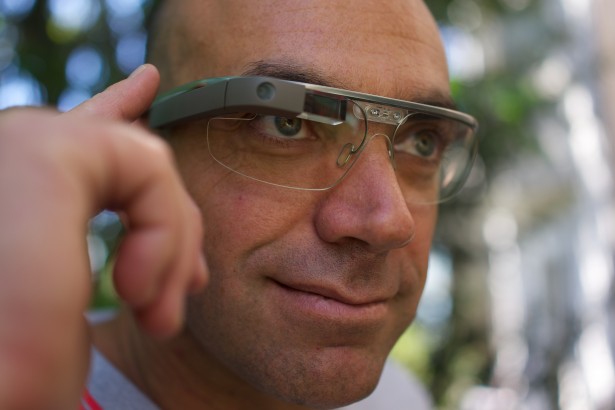A year ago, Google Inc. (NASDAQ:GOOG) Glass, a wearable device that acts similar to a hands-free smartphone, was all the rage and everyone hopped on the bandwagon. The early adopters went as far as shelling out around $1,500 for the item, but since then the enthusiasm as faded away into a distant memory as more consumers are ditching the product.
Google’s optical head-mounted display (OHMD was a “grand experiment,” says Slate Magazine‘s Will Oremus, while Mobile Burn‘s Luke Jones describes the innovation as “pointless.” Indeed, these comments will generate fierce debate to those who still value and see potential in this type of wearable technology.
Nine out of 16 Google Glass app makers, meanwhile, said they had abandoned the product because there weren’t enough customers and there are numerous limitations, according to a Reuters survey.

Of course, like other products, there have been some success stories, such as reports of Google Glass aiding those who are losing their hearing and assisting a Michigan teenager who is gradually losing a major portion of his vision.
With that being said, new studies suggest Google Glass can create small blind sports for users.
So what’s the major point of contention when it comes to Google’s attempted revolutionary device? According to Astro Teller, head of Google X labs, which led the development of Google Glass, it’s too expensive.
Teller recently spoke with CNet this week regarding Google Glass and noted that a reduction in prices for high-end products similar to Google Glass could substantially improve the market penetration.
“But for a $200 watch, or Glass, or anything in between, I think it’s sort of fair,” he said. “Every time you drop the price by a factor of 2, you roughly get a 10 times pick up of the number of people who will seriously consider buying it.”
Although he didn’t provide an exact date as to when Google would lower its price-tag for its glass, he argued that the search engine juggernaut would need to cut its price by about half in order to succeed.
In addition, Teller touched upon privacy issues and purported how Google Glass has essentially become the representative of breaching privacy, which something he believes needs to be discussed if the company wants the wearable tech product to achieve greater adoption. However, he did say that the conversation would transform into one about how it’s becoming increasingly difficult to protect privacy in a wired world.
“It has become a bit of the poster child for some of those issues,” said Teller. “That is the right conversation to have. There isn’t an easy answer for that. But it’s not really about Google Glass.”
Moving forward, Teller believes Glass needs to be marketed as a specialized device, or a smart product as opposed to an all encompassing item that operates just like a computer. He likened this to a Swiss Army knife, which consists of a saw, but if you have a heavy-duty saw next to you then you’re likely to use the ladder as opposed to the former.
Is it too little too late for Google Inc. (NASDAQ:GOOGL) Glass to regain its momentum? It’s difficult to tell because a lot of developers and customers are opting out at the moment. Google will need to try harder next time to gain their confidence back if it’s likely to succeed. Perhaps Google should leave glass to the professionals or at the very least consult with them which could potentially reduce costs.



